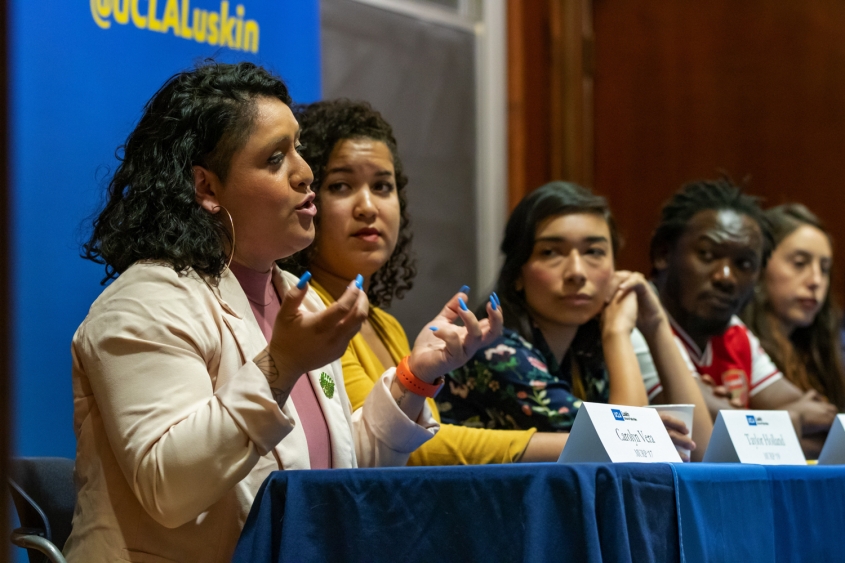
A Passion for Diversity UCLA Luskin showcases its programs — and its people — who are pushing for all voices to be heard on issues of public concern
By Les Dunseith
The social justice ethos and commitment to diversity that form the backbone of UCLA Luskin’s graduate degree programs were front and center during the fourth annual Diversity Fair.
Dozens of graduate student recruits came to campus in November for a full day of discussions and workshops. Key speakers included Dean Gary Segura and the chairs of each graduate department: JR DeShazo of Public Policy, Laura Abrams of Social Welfare and Vinit Mukhija of Urban Planning, all of whom are professors in their respective fields.
A highlight of the day was a panel discussion during which six alumni talked about why they chose UCLA Luskin and offered insightful advice about how the graduate school experience can help people with a passion for change figure out ways to turn their ideals into action.
“How do governments create safe spaces for immigrants? How do we improve the basic services that government provides so that it actually fits the needs of the people who are using them? All of those things were in my mind as I started the program,” said Estafanía Zavala MPP ’18, who is now project lead, digital engagement, for the city of Long Beach. “I feel like the program really helped me gain a good understanding of what was actually going on in the world and how to process it.”
Taylor Holland MURP ’19, assistant project manager at PATH Ventures, a nonprofit agency that works with the homeless population in Los Angeles, said that she chose UCLA in part because of its vast alumni network in Southern California. She said she met “great alumni by coming to events like this. We have super-active alumni who you can really tell are pushing for change in different systems throughout urban planning.”
Several panelists said that UCLA Luskin helped them to further develop a social justice perspective, and they talked about their own efforts to foster inclusiveness.
Ulises Ramirez MSW ’96 is a clinical social worker and therapist in the Adult Outpatient Psychiatric Clinic at Harbor UCLA Medical Center, and he said that mental health service protocols are too often developed only with English-speaking clients in mind.
“The community that we serve at Harbor UCLA is very diverse. We see a lot of Spanish-speaking clients, and my goal there has been to provide top treatment to monolingual, Spanish-speaking clients,” Ramirez said. “It’s an underserved population, and they have nowhere else to go.”
Christina Hernández MSW ’17, community accompaniment coordinator for Freedom for Immigrants in Santa Monica, said her clients come from immigration detention centers.
“They are asylum-seekers; they’re refugees; they’re immigrants. These are people coming from all over the world,” she said. “Our goal is that the documents that we have for English speakers, we also make available for other languages as well.”
The speakers noted that racial minorities and women have traditionally been underrepresented in some of their fields.
“I think our perspectives as folks of color are so important in transportation planning,” said Carolyn “Caro” Vera MURP ’17, who was born and raised in South Los Angeles and now works as a planning consultant. She makes an extra effort to encourage minorities to pursue planning careers.
“If you ever need anything, hit me up,” Vera told the prospective students of color in attendance at the Diversity Fair. “It’s hard to get into the field. It’s daunting. But we need you in that field.”
Wajenda Chambeshi MPP ’16, a program manager for the city of Los Angeles, noted that a lack of diversity in some professions starts with decisions by young people from minority communities about which courses of study to pursue.
“Some of these professions that we overlook make really, really important decisions about where funds are going to be allocated, how they are going to be allocated and, ultimately, who receives what. That’s why we need diversity,” Chambeshi said, “so when we graduate, we will be able to filter into those positions that are able to divert resources — or even just rethink how we think about planning and public policy.”
As “the housing person on this panel,” Holland talked about the ethnic component of the homelessness crisis in Los Angeles.
“We have 60,000 people on the streets in L.A. on any given night, and it’s largely a black crisis. We have 9 percent of the city that is black; 40 percent of our homeless population is black,” she said.
Holland said her focus is on chronically homeless people, many of whom are people of color.
“They are … people who have been forgotten about in every aspect of their lives and cannot be pulled up by their bootstraps. Looking at social justice and housing — it’s particularly in a crisis in L.A. right now,” she said, directing her attention to the prospective students of color in the audience. “And we need all of you guys to help out as you can.”
The alumni panelists spoke passionately about the advantages of being actively involved as students, and they urged attendees to build expansive personal and professional networks.
Vera said she battled depression during her time as a UCLA student and suffered a panic attack during an exam that threatened her opportunity to graduate. But friends helped her through.
“Always advocate for yourself. Create peer networks and check in on each other,” she said.
Noting that the pressures of academic life can be especially difficult for first-generation college students from disadvantaged populations such as herself, she continued: “You are more prone to having depression and anxiety when you come into a program that just doesn’t look like what you are accustomed to.”
Building a network as a student was important to Ramirez as well. He cited his involvement in the Latinx Caucus as a particularly beneficial connection, “and 23 years later, we still get together.”
Hernandez echoed those experiences.
“I am a first-generation daughter of immigrants, and navigating these spaces was very difficult for me,” she said. “So networks were a lifesaver.”
Hernandez ticked off the names of UCLA faculty and staff members who helped her as a student and remain close. “It was amazing to have people who look like me, Latinos, as advisors and as supervisors, who I could go to and say, ‘Hey, I’m stuck with this issue.’”
She continued: “That is the beauty of joining this school. Even after you graduate, you still have folks who are going to be there to support you regardless of the situation.”
View more images from the event on Flickr:
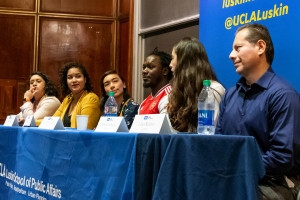
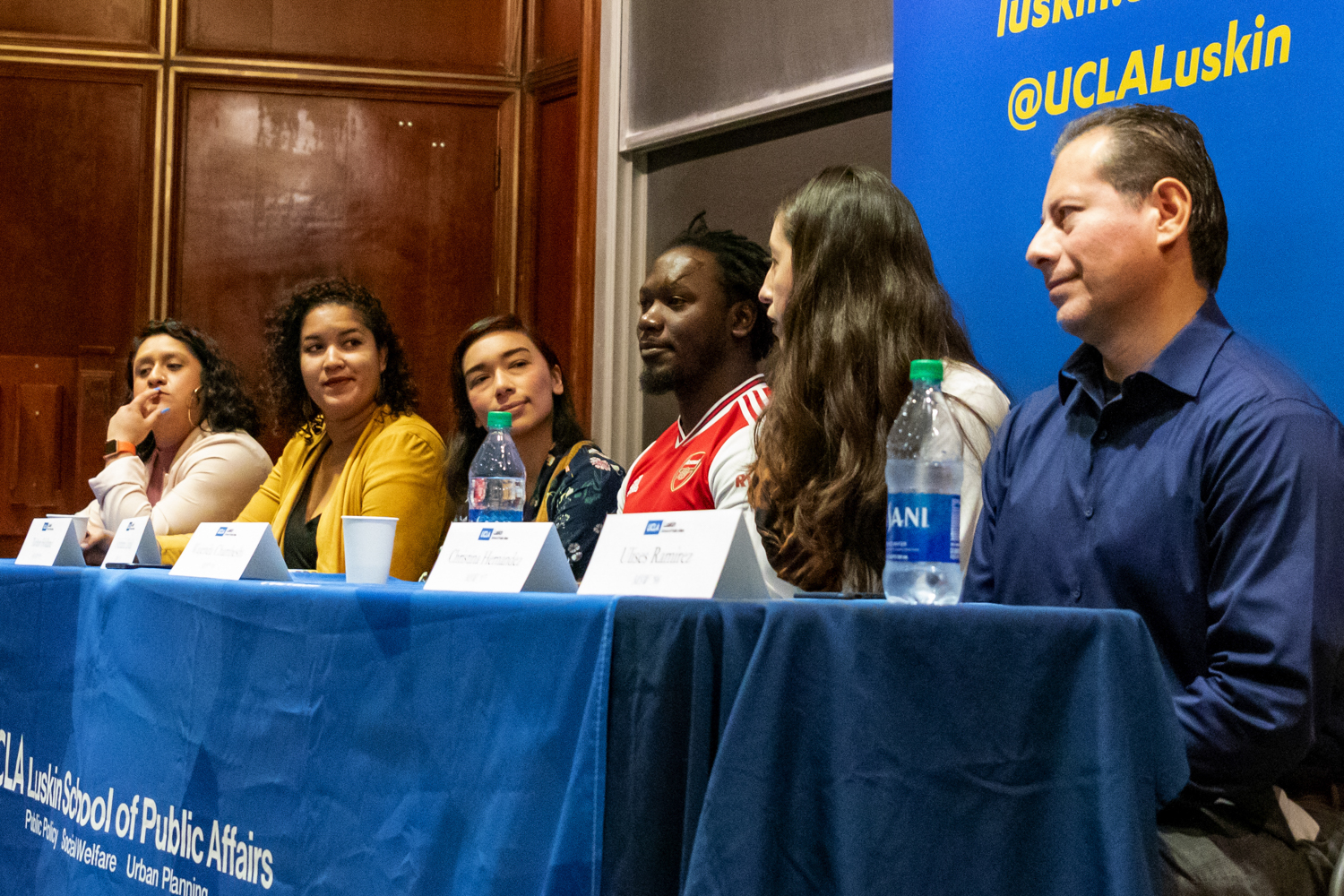
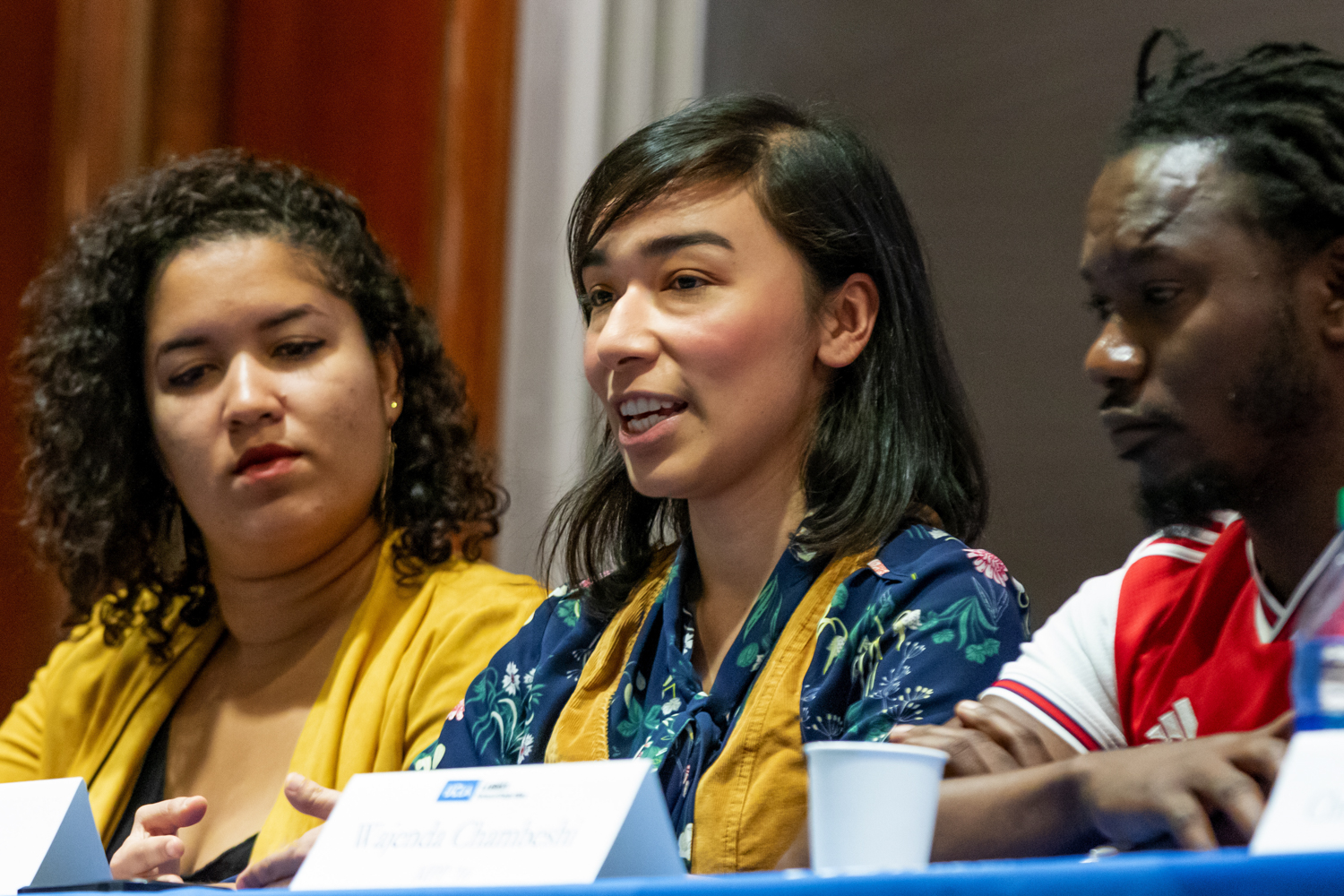
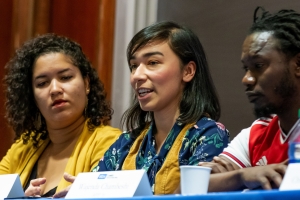
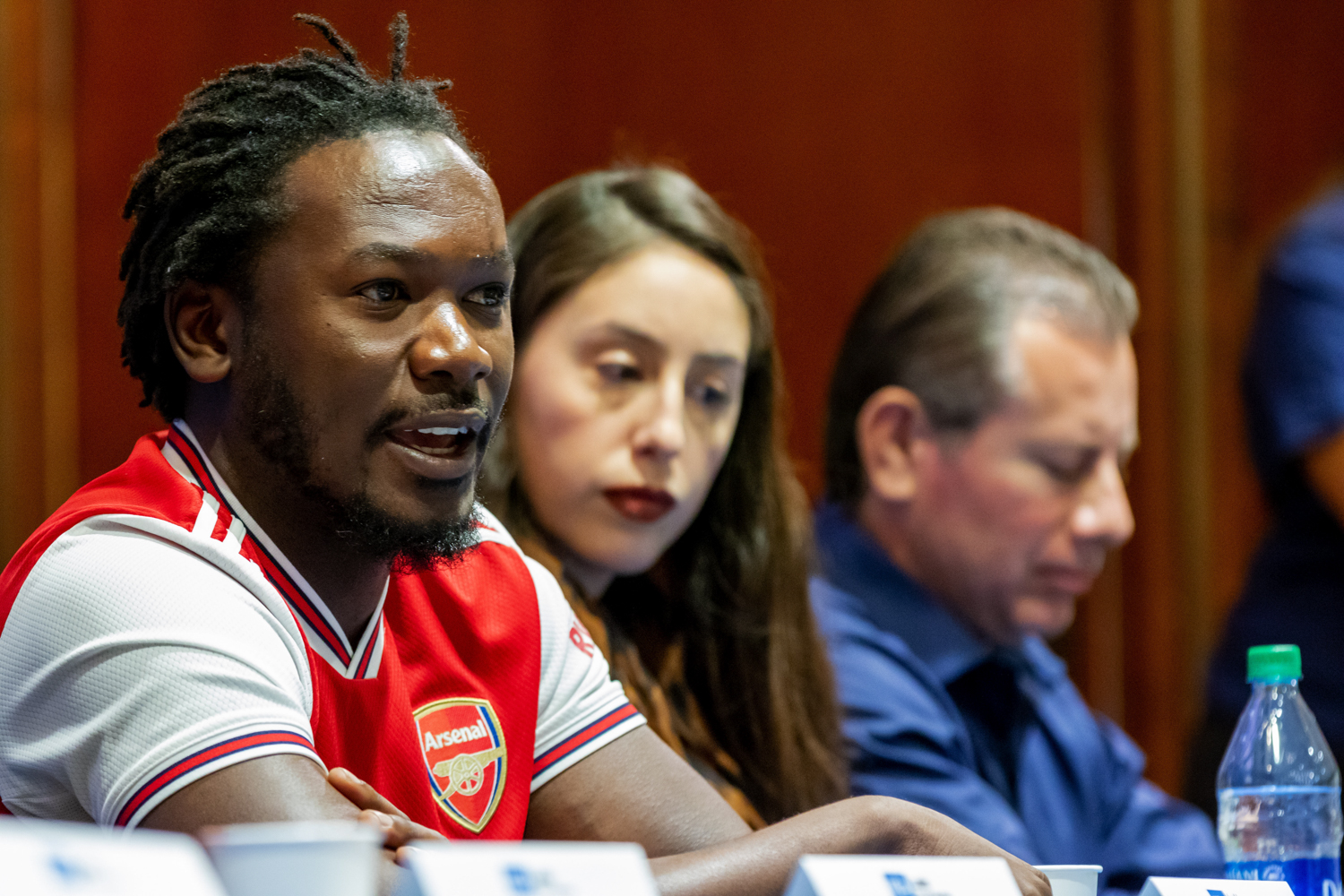
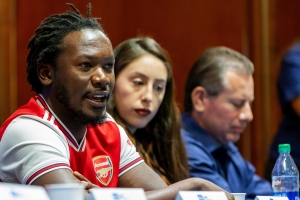
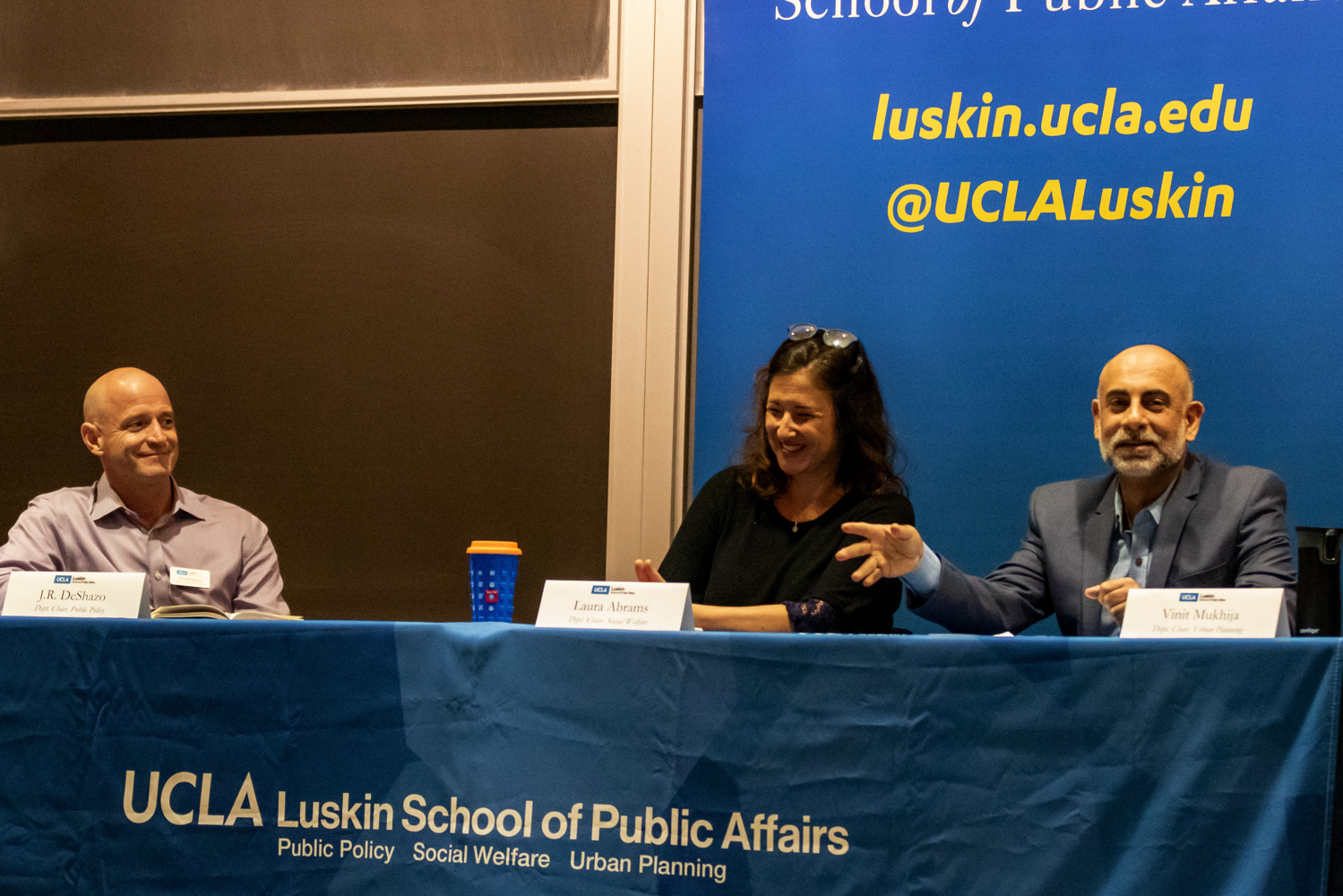
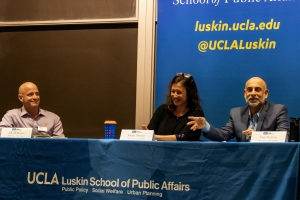
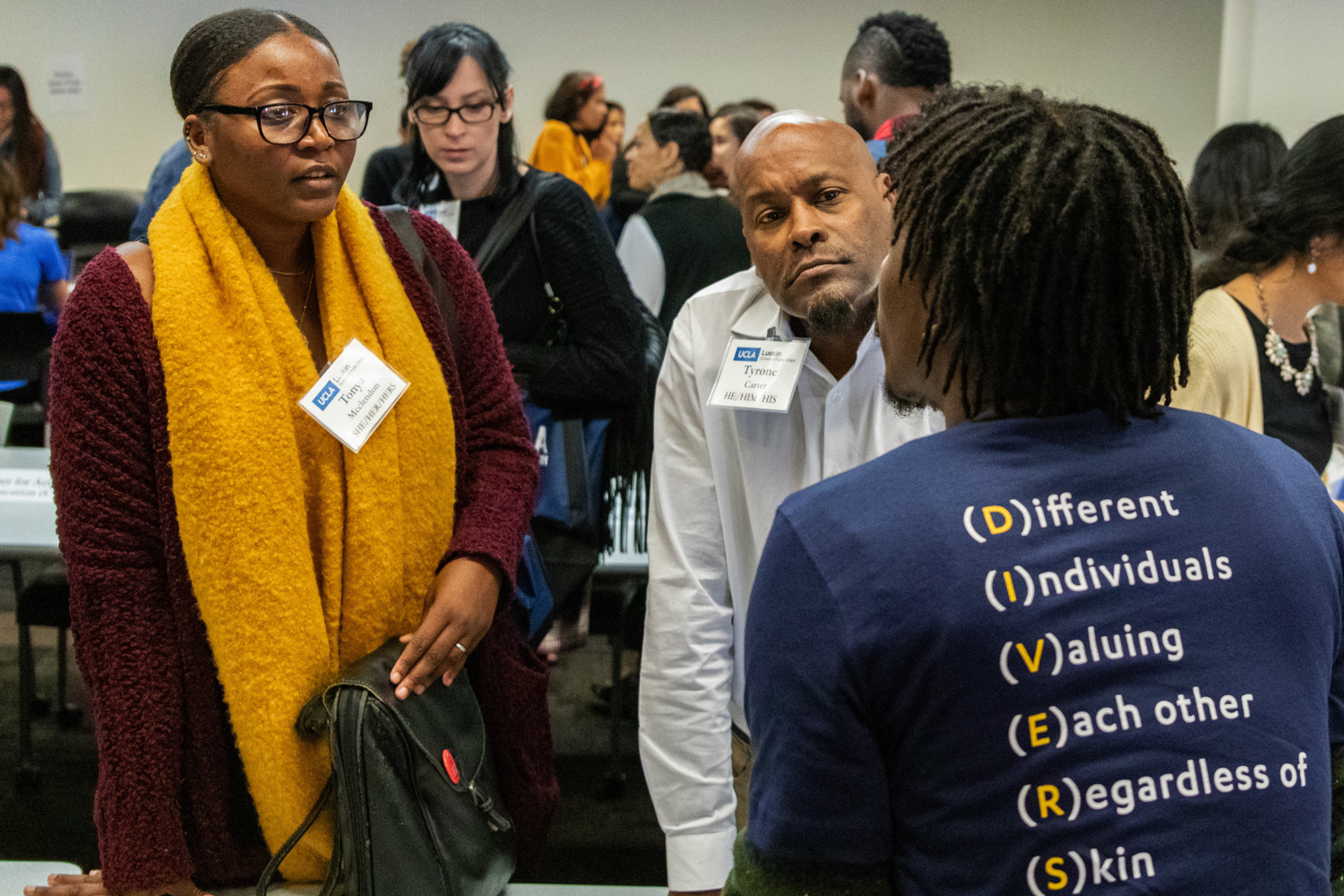
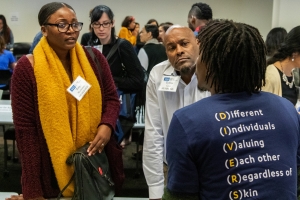
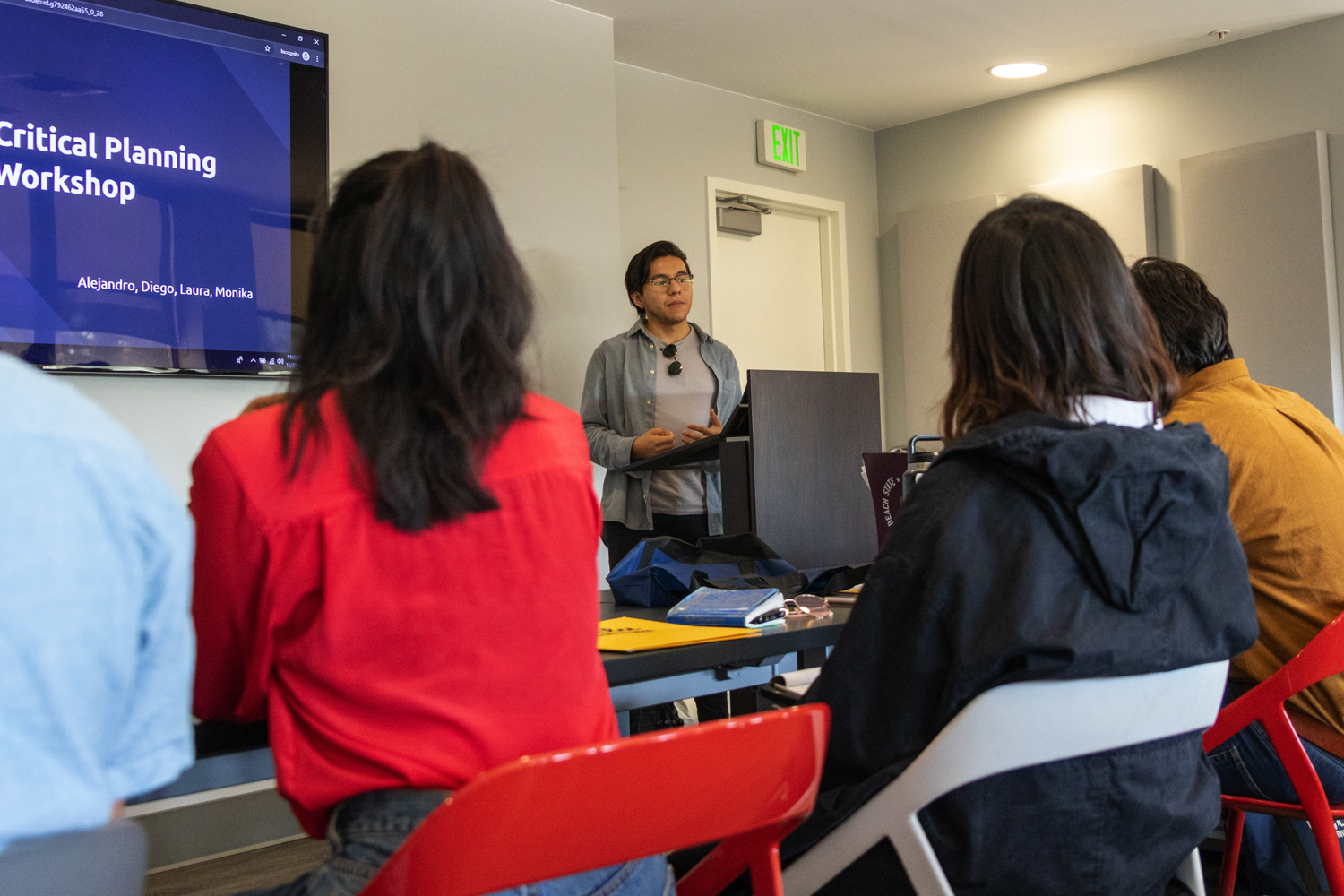
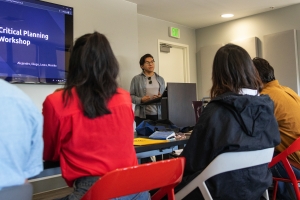
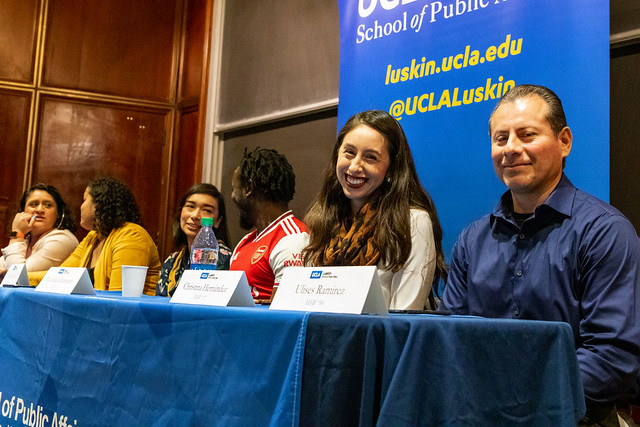

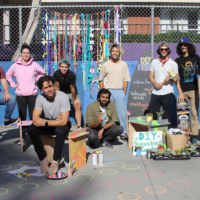
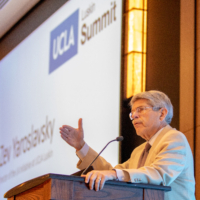
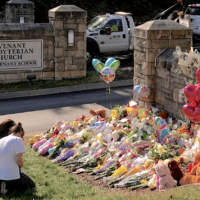
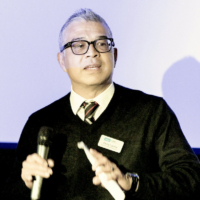



Leave a Reply
Want to join the discussion?Feel free to contribute!